Saturday, May 27, 2023: A Lumberjack who is fed up with cherry pie.
Diary:
As we were leaving Kapuskasing, Annie Way was given a sticker that said kapuskasing.ca. She now wears that on the left side of her back door above the license plate. I don’t collect stickers, but Kapuskasing is just special to me.
I was a little sorry that I hadn’t run into a real Lumberjack, but objectively speaking, I hadn’t expected to.

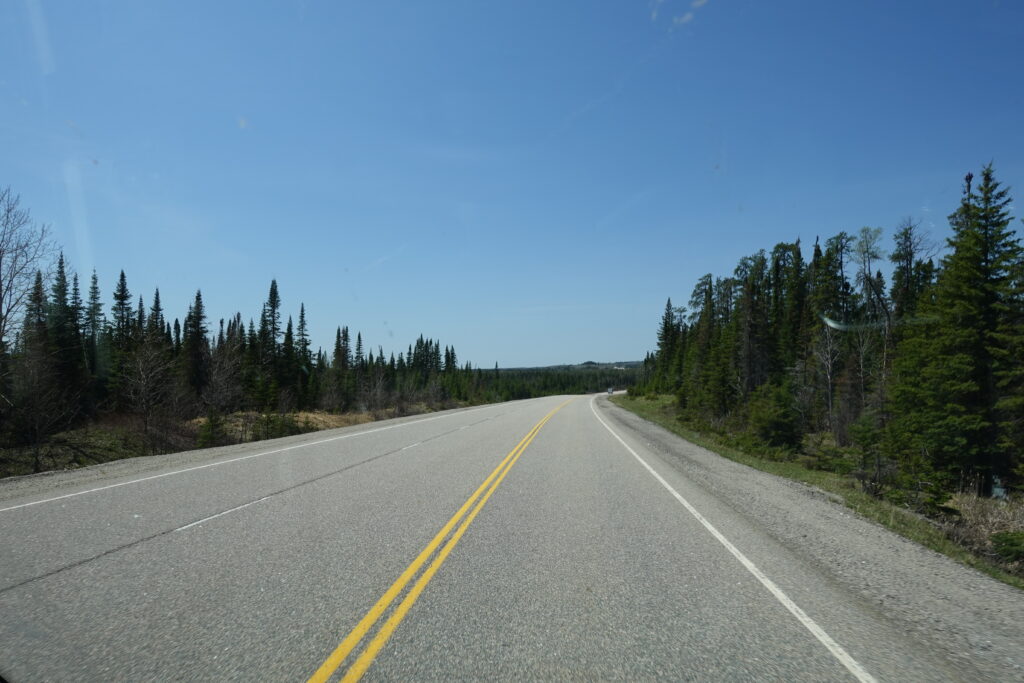
I had booked a campsite at Wild Goose Lake about 20 km west of Geraldton. There were no geese there, but it was a bit wild. However, also very romantic. And at second glance absolutely perfect.
When I inquired if there were any hiking trails in the area, the campground owner said yes, but they were overgrown. I should walk on the roads.
To be able to understand this, you have to know that Transcanada Highway 11 is the only road running east-west for the 800 km from Iroquois Falls to Thunder Bay, and it is also the most northerly. Further north, the only options are train or plane.
The nearest road to the south runs a few hundred kilometers away. There is actually one (!) north-south connection on these 800 km!
But back to the route Annie Way, the gang and I took. On the 200 km between Hearst and Longlac there was simply nothing. Except forests and lakes, of course. And rivers. But mainly forests. A deer. Canadian Geese. Black spruce, larch, birch, pine, alder. Herons.
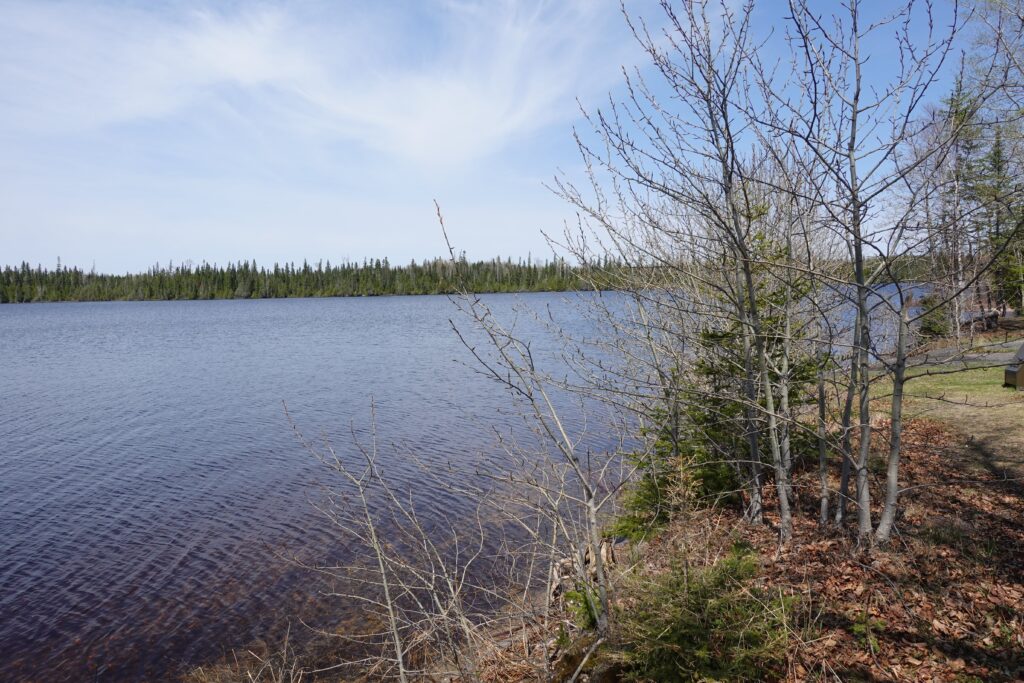
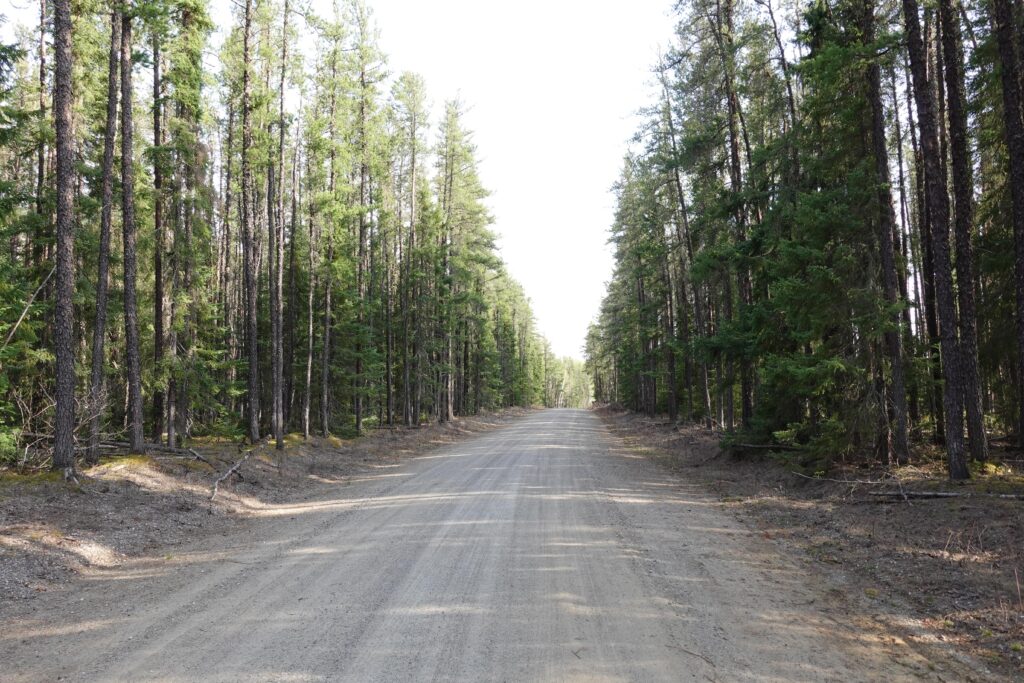
And when we simply overlooked Longlac, the next larger town, and were already out again before I could look for a gas station, I briefly got a little anxious and took a full service gas station in Geraldton, where the diesel is a lot more expensive – simply out of panic. We probably would have made it to Thunder Bay without any problems, Annie Way needs less than eight liters per 100 km. But I wanted to avoid that thrill. Besides, there were gas stations on the way to Thunder Bay anyway. Inexpensive ones. But how should I have known that?
Back to Wild Goose Lake and the campground owner’s suggestion that I should walk on the roads. There are occasional unpaved roads that branch off the Transcanada Highway, usually leading to the nearest large lake if it happens not to be directly on the Transcanada Highway. Because, as mentioned before, the Transcanada Highway was constructed as a straight line. Hill up hill down, but straight.
On these unpaved back roads you can actually hike quite wonderfully and at the same time convince yourself that the bears won’t come on the roads. Because they don’t like cars. There were no cars, at least not while I was hiking, but still. Bears do not come to roads. Since surviving the trails of Moonbeam, I’ve been bearishly self-confident. And there was still snow lying around at Wild Goose Lake, so the bears must have still been sleeping.
And at night there were still sub-zero temperatures.
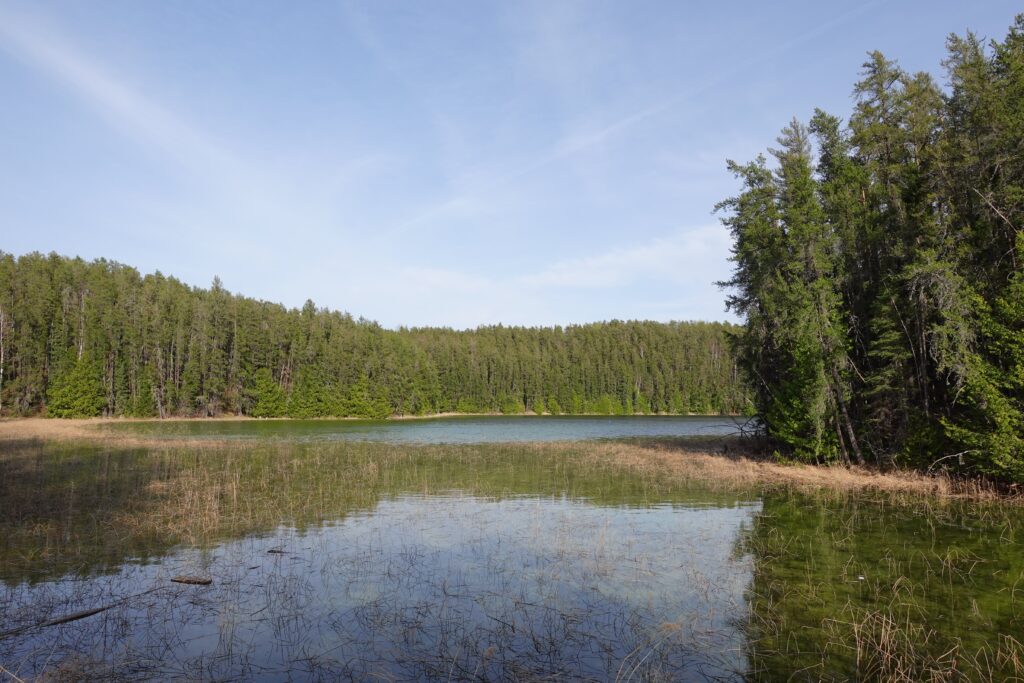
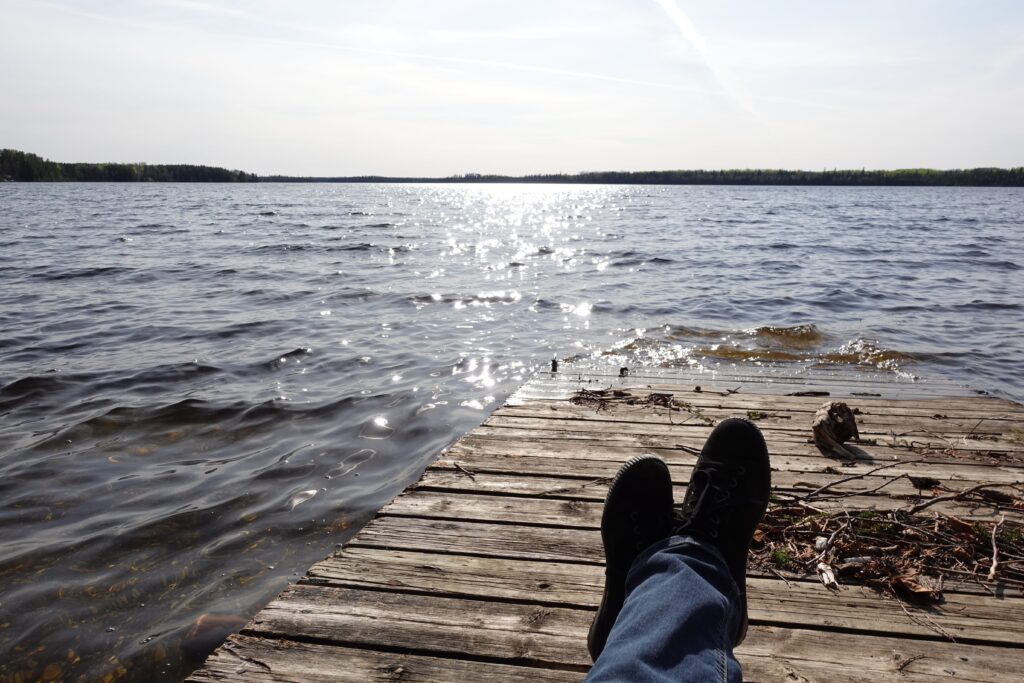
We had endless space again. A few permanent campers were already there, and I struck up a conversation with a gentleman. Bearspray? No, I don’t need Bearspray. A bear is harmless. It won’t hurt you.
Because Kapuskasing is not far away – only half of Austria in east-west direction – I told the story again – father, Kapuskasing, lumberjack. To which he said, “Too bad Gary isn’t here. He was a Lumberjack when he was young, too.”
I was very sorry about that.
That evening five people came walking along, two couples from Thunder Bay, including the one gentleman I already knew, and he introduced me to the fifth in the group: Gary.
Then they invited me in and we sat down at one of the trailers. There was a lot of joking, and Gary said that when you have friends like that, you don’t need enemies anymore.
I learned quite a bit about life in the camps that evening.
The next morning I visited Gary at his trailer before leaving. I showed him the pictures that the ladies from the Visitor Center in Kapuskasing had printed out for me. He said that was so long ago …
A whole lifetime has passed since then. Gary is 85 years old. “I pretend to be old!” he said. And he smiled. From 1955 – 59 he worked “in the bush”, that is, in a camp as a lumberjack. At that time there were no machines and work was done with horses.
The camps consisted of wooden houses. Fifteen to twenty men slept in each room, for a total of 100 to 150 per camp. Work was done six days a week. Some camps were so far away from the nearest town that you couldn’t go home at all. There was great cohesion among the men. The camps were known for having excellent cuisine. Gary didn’t seem to be so lucky, because dessert at his camp was always cherry pie, cherry pie and – you won’t guess it! – cherry pie!
They even had to work in very cold weather. However, from -40°C the horses stayed in the stable, but the men still had to go out. Very many Finns were in the camps. In winter, people from Quebec also came when there was a break in farming and they wanted to earn some extra money. In March, the camps were usually closed for a while, because it was not possible to work.
Later the camps were abandoned because it was very expensive to build and maintain them. It was cheaper to take the Lumberjacks to the woods every day. Since many of them had families, they no longer wanted to live in the camps. Moreover, by then machines were already being used, which changed everything.
Gary confirmed that they cut aisles in the forest and then moved on. He called them “stripes”.
He was not at Spruce Falls, Kapuskasing’s Paper Mill, but at another, but the conditions were the same, except that Kapuskasing was even colder.
“It was very very hard work,” he recalled. I can’t even imagine that.
It is also interesting that he did not stress Kapuskasing on the third syllable (kapus’kasing) as it is now pronounced, but he said ka’puskasing. At first I thought it was a joke, but he said that it really had been pronounced that way in the past. Quite possibly, the word comes from the Cree language, after all.
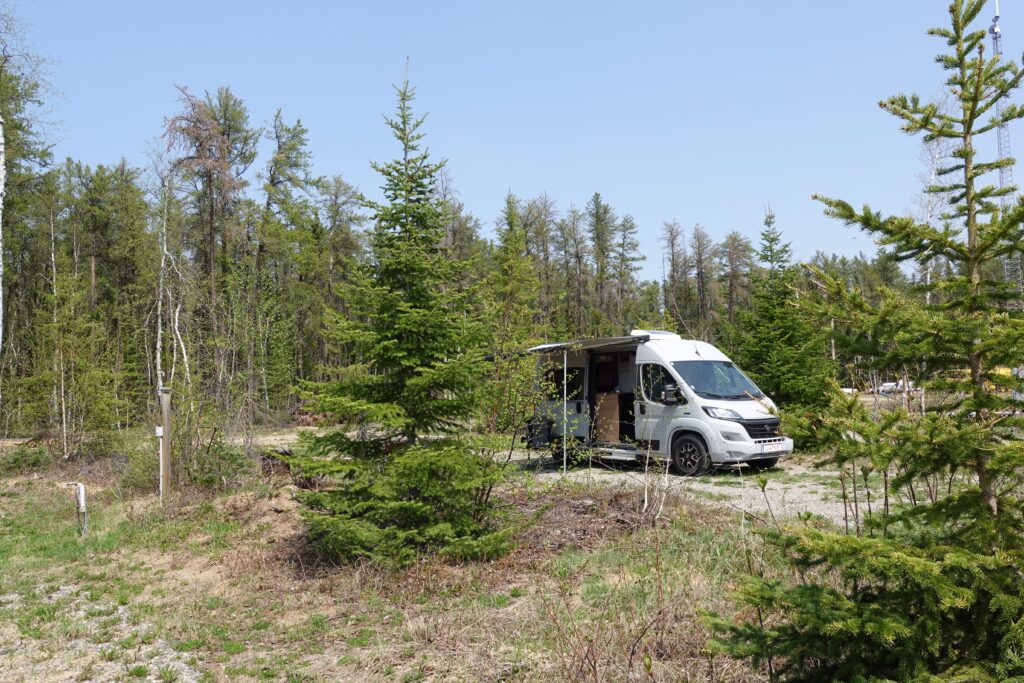
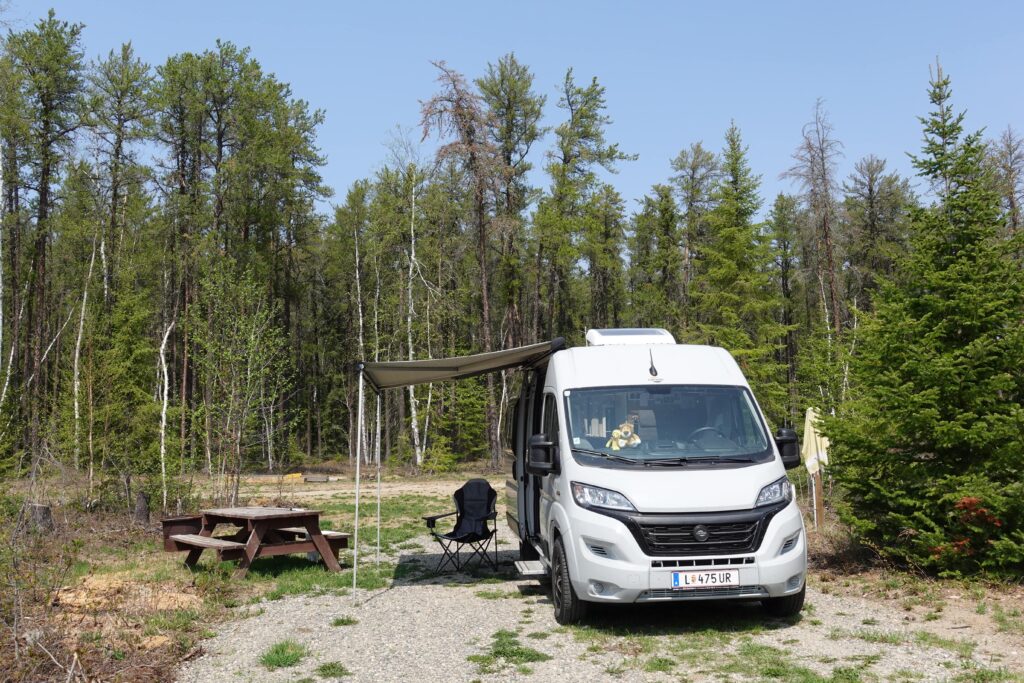
Gary had an interesting life with many different jobs. Of his six children, one son lives with him in his home in Geraldton, and one works in The Hague in the Netherlands at an international school. He will come to him this summer.
Gary always spends the warm season at Wild Goose Lake. Lucky for me, because not only did I get an “eyewitness account” of life as a lumberjack in a camp in the 1950s, I also got to know the youngest 85-year-old I’ve ever met. Gary, you are just wonderful! Big hug!
